IWD2021 - #BreaktheBias : Equality today for a sustainable tomorrow. The theme for International Women’s Day, 8 March 2022 (IWD 2022) is, “Gender equality today for a sustainable tomorrow”, recognizing the contribution of women and girls around the world, who are leading the charge on climate change adaptation, mitigation, and response, to build a more sustainable future for all. Together we can forge women’s equality. Collectively we can all #BreakTheBias. In keeping with the theme for IWD 2022, we pose these pertinent questions, to a cross-section of women who are all leaders in their own right, giving voice to their sentiments regarding this all-important day in the world’s calendar.
- Do you think that you have been able to make a change for women's equality - 'To break the Bias' and if so how did you achieve this?
- What more do you think needs to be done by both men and women to achieve a sustainable world, free of bias, stereotypes and discrimination, where difference is valued and celebrated?
Maud Meijboom-van Wel, Managing Director, HEINEKEN Lanka
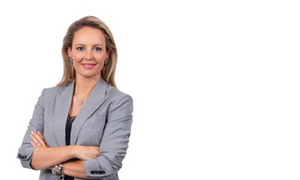
In all my teams I try to create a high performing environment of inclusivity, for both men and women, from all different backgrounds, people that walk the talk. Talent is about behaviour, people that go the extra mile, that have courage. Very often people who have faced more adversities bring exactly that courage and perseverance to the table. In Sri Lanka, I am honoured to lead the MT of HEINEKEN Lanka which has a 66% female to male ratio.
For both men and women to be allies, words and action must be in sync. We believe inclusion is based on actions because words without actions are detrimental. It’s about creating an environment where people are respected, heard, valued, and have equal opportunity to achieve their potential and contribute to our business success. To be a true ally, you need to lift others up by advocating, sharing growth opportunities, recognising systemic inequalities and most importantly – listen, support, self-reflect and changing. The company aims to continually improve the gender balance of our Senior Managers, with female representation across senior levels now at 25%. Our target is 30% by 2025 and 40% by 2030. We have additionally created a unique programme of more than 100 local I&D ambassadors who can build their skills and work with their local teams and leaders.
Aroshi Nanayakkara
Chair, Women Directors’ Forum, Senior Vice Chair, Sri Lanka Institute of Directors, Independent Non-Executive Director, Sampath Bank, President, Rotary Club of Colombo
Breaking the Bias is a two-way street. First, women need to aspire to higher roles that require you to work smart, get your support systems in place and give full commitment to your career. I have contributed in this area by conducting my “Super Woman” programme for hundreds of women, especially in the Financial Services industry encouraging them to reach higher. Second, we need companies to understand the benefit of having more women on their Boards and in senior management.
Much more needs to be done to sensitize Boards that bringing women onto their Boards and into management is SMART business. All research indicators portray a positive correlation between inclusivity of women and organizational performance in terms of financial metrics, risk management, corporate social responsibility etc.
Dr Lanka Jayasuriya-Dissanayake
Chairperson / Trustee, Indira Cancer Trust
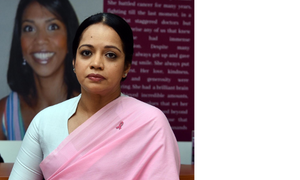
This women’s day 2022 we talk of #BreaktheBias by highlighting equality which emphasises gender equality as well as battling stereotypes and biases. The change for equality we at Indira Cancer Trust are striving for is to treat patients with cancer as equals and show ample empathy but not sympathy. Through our work, we’ve also met many courageous women who have faced countless hardships, along with battling cancer or having a loved one who is battling cancer. We at ICT work to empower them through various programmes such as “Diriya Hala” - our livelihood development programme which helps them achieve economic independence. We strongly believe in creating a world that is equal for all and gives equal opportunities to men and women, and are glad to advocate for this whilst uplifting cancer patients. ICT is also largely run by women and through our daily work, we are proud and amazed by the compassion, capacity and capability of all our volunteers and staff!
The majority of stereotypes and discrimination we see in our world stem from the lack of understanding and education. It’s extremely important that both men and women work to educate themselves on the unconscious biases that have been rooted within us by society.
Jumana D.Lukmanjee
Principal. Educationalist. Gold Medalist. Dramaturgist. PgD. LTCL UK. ATCL UK. MMI UK. AIWMS .MA (RDG)
Unconscious gender bias is ubiquitous because it arises from the existence of cultural stereotypes about various social categories. The content of these stereotypes tends to be widely shared among members of any society, women, after marriage and childbirth are often expected to play just the role of a good mother, a good wife and a good homemaker. Traits and behaviours stereotypically associated with men include being the breadwinner, provider, decisive, technical, strong, and logical while those stereotypically associated with women include being submissive, quiet, caring, relational, nurturing and sacrificing. I chose to make the change, I rose above these marginalised boundaries and stepped on the other side of the role and gender interplay by pursuing my career and higher education after my marriage and childbirth.
A sustainable bias-free world requires equal contribution from both men and women – may it be sharing the responsibilities financially, or at home bringing up the children. Parents need to teach their sons that no job is a ‘lady’s job’ and a man cannot do, vice versa daughters should be given equal opportunities to educate and pursue any role in society may it be before or after marriage and childbirth.
Tusitha Kumarakulasingam
Management Consultant/ Transformation Catalyst
Generating a culture of gender equality has to start in every home. Both male and female children have to be taught from early childhood, the need to respect and embrace diversity. This is an alien concept to us in SL where male superiority is stated as an inheritance. If we can create this awareness of equality at an early stage, both genders will learn to respect each other as equals and consider mutual strengths supporting to overcome weaknesses. As a Management Consultant working in the space of TRansformation for organizations and people, I have incorporated this into my work. Have raised children who have reached their unique potential. My book “Because I Said So” guides people through this journey.
Every human being needs to create a conscious habit of mutual respect, be it at school, workplace or in society. Everyone has strengths that can add value, whilst weaknesses can be overcome. If we can create awareness for this, need of mutual respect and the right for equal opportunity the world will be a better place.
Fabienne Francotte
Artist
To make a change for women’s equality has always been an attitude. It was also part of my education in the '60s and '70s. By questioning the invisible, working as an education person, calling for approaches to drawing as thinking, I think we engage the needs of a community and art is a wonderful tool to speak out. Artworks give a voice to memory and conscience. I had the opportunity to give a voice to “leftover individuals” through drawing sessions with female forensic at NIMH, Sri Lanka and Rohingya refugees in Bangladesh breaking the idea that these women had no place in society.
It starts with education at school giving a place to each of us, respecting each other, feeling empathy instead of judging. Parents are also responsible to teach these values, we tend to forget, to their children. It is important to start at ground level to meet different human beings such as migrants, disabled, LGBT, old people, poor people, minorities. To break the distance. To be in the world with our eyes open and to be the other.
Lankani Hettigoda
Director Research and Development, Siddhalepa - Hettigoda Industries Pvt Ltd
I am very happy to say that as the Director Research and Development I have been able to make a change. Our company’s laboratory is one such example where over 80% of laboratory personnel are females. There had been occasions where it had been 100% women’s representation.
We as global citizens should value and encourage a broad range of perspectives and capabilities that diversity brings to any organization and to various stakeholders and look beyond it as differences that divide us on the basis of race, ethnicity, religion, gender, age, disability, caste, pregnancy, health, sexual orientation. One way to achieve this I believe is to promote education, especially among women and girls which helps to alleviate poverty and hunger, improve health, responsible consumption to name a few.
Sandra De Zoysa
Chairperson of SLASSCOM and Group Chief Customer Officer of Dialog Axiata
As a female who has been in the tech industry for over 3 decades which is predominantly male-dominated, I believe I have made a difference through the various initiatives I have led and supported through Dialog, SLASSCOM, WIM and all other like-minded business leaders and institutions working towards achieving similar goals and aspirations. The SLASSCOM Women Technopreneurs Forum (WTECH) was initiated by me, dedicated to fostering women in IT and enabling female entrepreneurship with the long-term aspiration of bridging the gender divide and significantly improving female participation leading to Sri Lanka’s economic success.
Women’s empowerment is a critical aspect of achieving gender equality. It includes increasing a woman’s sense of self-worth, her decision-making power, her access to opportunities and resources, her power and control over her own life inside and outside the home, and her ability to effect change. Upskilling and reskilling the female talent pool in the workforce is also a critical aspect and one that we focus on through the SLASSCOM Academy where most programmes are offered at no cost. SLASSCOM’s WTECH Forum brings together the tech women of our industry working in a voluntary capacity to impart their knowledge, experience, and time and above all their passion, commitment and focus to enable women entrepreneurship and female leadership.
Sajeira Abeysekera
Director, Heart Aid Center. Sajeira together with her husband, launched “The Heart Aid Center” (HAC) in February 2019, under the Sisili Group of Companies, as the Group’s first foray into privatized healthcare services.
We are truly #breakingthebias by appointing a woman as the head of the Sisili Engineering. Nadiesha Apsara, a University of Moratuwa graduate, was first hired as an engineer for the waste management arm, and after recognizing her potential – she took on the mantle of heading the independent engineering arm. In a true example of women lifting each other up, her second in command is another woman graduate from the University of Moratuwa, Damsha Jayawardena. It is truly remarkable for me as a woman in the workplace to walk by a worksite and see two women leading the team of engineers and contractors as it is a sight not often seen in Sri Lanka.
As a collective in Sri Lanka, we need to create an environment encouraging the economic self-sufficiency of women by helping them leave behind traditional cultural boundaries to establish their heart’s desire in the business world. One such way is to normalize standardized daycare. Whilst some of the bigger companies already offer such amenities, the backbone of Sri Lanka (ie. the SMEs) still do not have access to quality daycare. An idea is to collaborate with other similar geographically located medium/small-sized companies and set up a daycare facility that can be partially subsidized by the company. This will promote less of a #genderbias which exists when the question of hiring a newly married young woman arises due to the fear she will not return after giving birth. If the company itself can provide a solution at the outset – then it can hire without any #genderbias.
Visakha Tillekeratne
Development worker and activist for over 30 years, she is a Chemist and Food Technologist by profession. She was also the Chief Commissioner of the Sri Lanka Girl Guides Association 2017 to 2020.
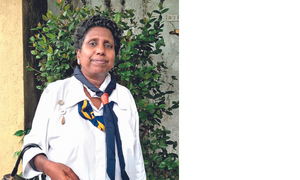
Eleven women have petitioned the Supreme Court, including myself, invoking fundamental rights enshrined in Articles 12(1 & 2) and 14(1)(g) of the Constitution to protect Excise Notification 02/2018 of January 10, 2018, from amendment and/or revoking. The said Notification which turned back the Excise Notification No 666 of 1979, permits women to purchase alcohol and to work in places where alcohol is sold. Following the issuing of the Notification, President Maithripala Sirisena announced that he would revoke it. Yesterday the cabinet of ministers unanimously decided to withdraw the Gazette notification on extending business hours of liquor shops and allowing females to buy or sell liquor.
The petition was filed by Nishanthi Bandaranayake, MDJB Fernando, Samanalee Fonseka, M.D. Chandima Ravini Jinadasa, Deepanjalie Abeywardana, Sabrina Esufally, Sharanya Sekaram, Randhula de Silva, Meneka Galgamuwa, Sujatha Gamage and Visakha Tillekeratne. This is just one example of my activism.
Work with children as young as 5 years up to 18, where they are keen to follow the correct path. But we adults pollute their minds and their values. If gender equality and equity are to be achieved, teach both girls and boy children to respect each other, share chores at home, not to be violent, to be able to communicate and resolve problems, and to protect the environment - TOGETHER.
Renu Samarasinghe
Renu is the National Representative for Trinity College London in Sri Lanka. She is also a Director of The Polytechnic Pvt Ltd, a tertiary and vocational education centre that has serviced the youth of Sri Lanka for over 100 years.

Yes, when I first entered Bristol University to read Mechanical Engineering I experienced a lot of unconscious gender bias. Not only from friends and family who were surprised at my choice of degree but when I arrived at University too. I was one of just eight females out of a class of 80 Mechanical Engineering students. This was a surprising statistic to me from the get-go. I was then informed that the percentage of women who dropped out of an engineering degree was very high. True to the fact it happened in my class too, with finally only four out of the eight of us - a dropout ratio of 50% - women ending up graduating with an Engineering degree. The problem was not the difficulty of the degree. It was the fact that especially the lab work, was heavily weighted towards the success of the men in the class. It was completely unconsciously done. I was adamant to stay my course, not only because I was passionate about my degree, but also as an added advantage I wanted to prove to myself that I could do it like a woman!
Women and men in the workplace and in all environments have to make a conscious effort to stand up for gender equality. There are steps that an organization can take to consciously stop gender bias and it’s important to have them as formal rules. If formal rules are established it becomes more difficult to stray from them. I also strongly believe in the importance of encouraging and creating opportunities for girls in the education system who want to pursue STEM. It’s about time that we start changing the female dropout rates in STEM programmes in schools and in Universities!
Stasshani Jayawardena
Director Aitken Spence PLC Head of Tourism and Leisure Chairperson Aitken Spence Hotel Managements (Pvt) Ltd
I understand that being in a leadership position is a significant responsibility as well as an opportunity to influence change. At Aitken Spence, our collective effort is always to enable an equal playing field for everyone to access opportunities. Our female representation is at roughly 27% in senior management and 40% in the overall workforce. We invested Rs. 70 million to open a safe, well-equipped ladies’ accommodation facility at our most iconic property in Sri Lanka, Heritance Kandalama. The parents and families of the female staff were invited to the opening to see for themselves where their daughter, sister or wife is going to stay. These are just a couple of examples, and we have several in the pipeline to promote an inclusive, performance-based, and values work-life balance.
I believe the most important change we still need to work on as communities are to change how we think and what we accept as normal. I feel that we often confuse ‘average’ with ‘normal’ and that is where the stereotyping and associated bias begins especially unintentional bias. Awareness of equality from a young age for both boys and girls can influence a generation where women are empowered to reach greater heights in whatever they choose to do.
Renata Boreham
BSc (Hons), UK Registered Midwife with over 16 years of clinical practice and former Midwifery lecturer at Oxford Brookes University.
Of relevance to #BreakTheBias is me trying in a small way to use my passion, experience, and skills for the benefit of local women and their families; to give them choice, to give them a voice and to encourage health professionals to see them with increased compassion.
I facilitate specifically designed interactive workshops at the invitation of the government and private establishments to remove blind spots and help doctors, medical students, midwives, and nurses to have increased awareness of the impact their conduct has on childbearing women and understand how compassionate care makes such a difference.
Going back to the basics of humanity where each one of us continually reflects on our behaviour as part of everything we do and treats ourselves and everyone around us with kindness and respect as equals. Look outwards, not inwards and celebrate that diversity is strength. History teaches us how dangerous it is not to do this. When the young see all adults role modelling kindness and respect, they will follow.
Krishni Iresha
Guest Relations Manager, Fort Printers Hotel, Galle Fort.
I think to some degree I have because I’m very vocal about the issues faced by women in many spectrums and encouraging women especially out of Colombo, to speak up when they feel they are being treated unfairly. As someone in the hospitality sector, whenever I meet with people higher up, I always stress how we need more women in hotel operations because we simply don’t have enough. And many don’t join because they don’t feel safe. Big hotels train staff to respect each other, but out of Colombo you don’t see that very often, thus they end up at home. I also use my social media spaces both IG and FB to create awareness on issues faced by women, the injustices we face, and how much the system has failed us primarily due to patriarchy.
It starts at home. Parents must teach kids from as young as kindergarten age to respect each other. No means no. The fact that boys can be sensitive and it’s OK to cry. That bullying even if it’s seen as ‘teasing’ is wrong. We live in a patriarchal society that teaches boys it's ok for ‘boys to be boys’ and girls are meant to be wives and baby-makers. We don’t teach our daughters they can become engineers, CEOs, or even entrepreneurs. We teach them that – girls are meant to be teachers, doctors, and nurses. ‘girly’ jobs. Change begins at home.
Dr. Thiasha Fernando
Director – Ninewells Hospital
As a pioneer in women and childcare, we constantly strive to advocate women’s equality as well as equity in all that we do, from our recruitment processes, appraisals, promotions, and everything in between. With women making up nearly 75% of our workforce, we understand that men and women are different and that their circumstances are different. Therefore, our goal is to always level the playing field for all of our employees. This could mean a nursing mother being given the opportunity to work flexible hours while the rest of her team fills in for her during her absence, or a single parent being given the opportunity to attend to their child’s needs more often without being penalised for it.
I believe that the change and shift in the narrative we’re striving for should start at home, and within the smallest building block of society – family. A family where the husband and wife play equal roles in raising their children, doing the house chores, and providing for the family, is more likely to build a healthier, more balanced, and sustainable home environment over time.
Chandi Dharmaratne
Currently serves as the Vice President of Human Resources at Virtusa where she is responsible for HR tech automation globally
Throughout the years I have spent my time coaching and mentoring young girls and women during multiple touchpoints in their lives. I believe we need to create awareness in the entire ecosystem to really #breakthebias. I am fortunate to have been involved in many initiatives across multiple associations, such as the Lankan Angel Network, The Sri Lanka Association for Software Services Companies (SLASSCOM), The American Chamber of Commerce in Sri Lanka (AMCHAM), and the Association of HR Professionals (AHRP), to work towards gender equality. These organizations have been, and are focused on gender equality and there’s some amazing work that’s being done.
Organizations moving towards enabling all processes with technology, using AI, predictive analytics, etc. will definitely help us move away from human biases that come into play specifically during resume selection, hiring, promotions, and even right throughout an employee’s journey in the organization. Also, progress data must be broken down into bit size initiatives and measured in a transparent manner- because what gets measured, gets done. This will help inspire women and educate men, on how they can play their part in supporting gender equality in the workplace.
Ramani Ponnambalam
Currently serves as the 1st Vice Chairperson of the Women’s Chamber of Industry and Commerce (WCIC). She is also the Managing Director of Macbertan (Pvt) Ltd a Manufacturing Company which is a Subsidiary of McLarens Holdings Ltd.
At the Macbertan Factory, we have employed women wherever possible in Finance, Production, and Quality Control. We have found them to be skilled, dedicated, and loyal even during the challenging times which we face today due to the Covid pandemic. In my personal capacity, I was elected to serve as the President of the Classic Car Club of Ceylon, which is the local representative of FIVA the International governing body for Classic Cars. I believe I was the First Lady to be the President of a Motoring Club in Sri Lanka.
When I was offered the Presidency during the 25th year of the Club, I was hesitant at first, as at that time I thought, it may not have been the norm for women to lead a Motoring Club, which also promotes preserving of Classic Cars. Not forgetting the fact that all other Office bearers / Committee members were Men and over 95% of the 250 plus members were Men at the time, I was proposed to be the President of the Club! I took the challenge and never regretted doing so. I was re-elected as President for 5 years running until I retired last year.
I believe gender should never be an issue, especially at workplaces. As selection and promotion criteria both men and women involved in decision making should consider the candidates' dedication, efficiency, and past performance as the criteria. If we can collectively canvass this, starting from our own workplaces, and other environments which we have access to, in the future we could be celebrating a gender bias-free world.
Prashanthi Mahindaratne
Former War Crimes Prosecutor/ Senior Counsel, is the first Sri Lankan woman to serve as an international war crimes prosecutor. She also has the distinction of co-drafting one of the most important pieces of legislation of recent times, the Office on Missing Persons Act No.14 of 2016 passed by Parliament in 2016.
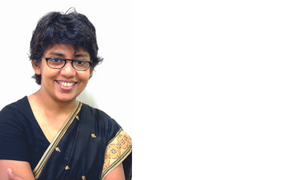
I find it an irony that we are still having this conversation about making changes towards women’s equality in the 21st century when women’s equality should be a fact of life that should have been fully recognized and etched in the national psyche as far back as the beginning of the 20th century at the very latest. But here we are on 8th March of every year continuing to have this conversation, without seeing any tangible changes on the ground. And I find it tragic that while this discourse takes place, there are 1000s of women who do not even have the most basic right against violence let alone equal rights, who continue to suffer sexual and gender-based violence on a daily basis, even in their own homes.
I train and provide guidance to a group of young, highly motivated, and extremely efficient lawyers, who represent the rights of victims of sexual and gender-based violence, including domestic violence. This group is carrying out an invaluable service in assisting numerous women and children to access justice and obtain redress against physical, mental and emotional abuse. One of the most troubling issues they face regularly is the resistance on the part of the Police to record and investigate complaints relating to domestic violence, on the purported basis that the Police do not wish to create disharmony in family units.
Ironically, in many instances, even women police officers refuse to take cognizance of complaints of domestic violence. In fact, the Spokesman for the Police Department quite openly declared in a live TV interview last year that the Police will not take action pursuant to complaints of domestic violence between “wives and husbands” as a policy, in the interest of “culture, value, and ethics”. He even publicly declared that even where the complainant may have suffered “a slight assault or abuse or threat”, the Police would NOT take action against the perpetrator. And this statement is despite the fact that any form of assault, however slight, constitutes a punishable criminal offence under our Penal Code, which requires the Police to record and investigate the complaint in terms of the provisions of the Code of Criminal Procedure. The Spokesman stated that the Police would instead try to “reconcile” the parties.
Now in my entire 32 years of legal practice, I’m yet to see any constitutional or legal provision that calls upon the Police to become family counsellors, instead of preventing and investigating crime. Take the tragic case of the 49-year old mother of three girls, Suneetha, in Gokarella, who was brutally murdered by her husband a few days ago. She was consistently battered by her husband and had even obtained a protection order from the Court last year. The husband continued to violate the court order and continued to brutalize her. I have learnt that her attorneys had consistently complained to the Gokarella Police that the man was violating the court orders, requesting that he be immediately arrested to no avail. And during the Police inaction, the woman eventually got killed in the presence of her 15-year old daughter. This fully demonstrates the dire consequences of the apathy of our law enforcement forces to domestic violence.
The Government talks about upholding law and order when significant numbers of Sri Lankan women are not safe even in their own homes. Then, consider the Cabinet Decision of January 2018, which prohibited the sale of alcohol to women of any age, alongside males under 21 years of age, insane persons or persons known or believed to be intoxicated. The second limb of that regulation prohibits women of any age alongside boys under 18 years of age, persons suffering from leprosy, criminals and those convicted of excise offences, from being employed or engaged in any business or trade, which involves liquor.
The proviso to that regulation notes that the Exercise Commissioner may in his discretion permit the employment of female persons above the age of eighteen years, only as waitresses in such businesses. And the purported justification for the regulation was yet again - “culture and tradition”. We have challenged that Regulation before the Supreme Court, and the Court has granted us leave to proceed. So I do not wish to discuss the matter any further since it’s sub-judice. My point is that we are still struggling to have some of the most basic rights of women, recognized in our laws, policies and bureaucratic action. Paying lip service to equality and prohibition of gender discrimination in the Constitution does not suffice if those constitutional guarantees are not translated into ground realities.
There should be well thought out reforms and changes at every level if we are to achieve a tangible difference - law reforms, policy reforms, educating and sensitizing the Police, the Security Forces and the bureaucracy re equality and equal rights, sensitizing children on equality through school curricula, and of course, we need more female cabinet ministers and parliamentarians. And I also think particularly for Sri Lanka’s patriarchal society, the terms “culture”, “tradition”, “values” and “ethics” need to be clearly and loudly defined and explained so that those words are not bandied around to purportedly justify patent inequality.
By Anusha David


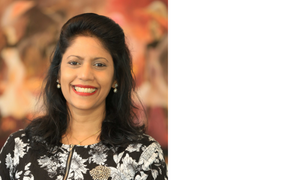

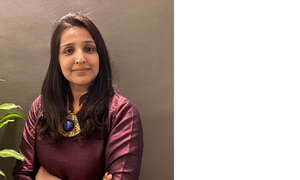
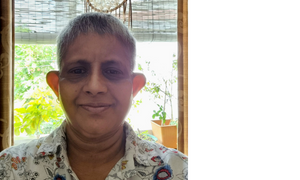
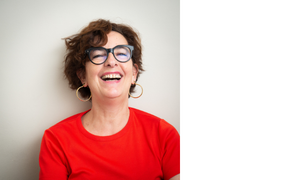
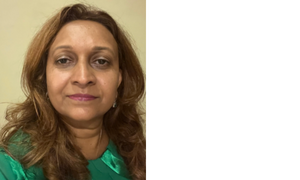
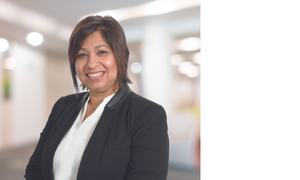
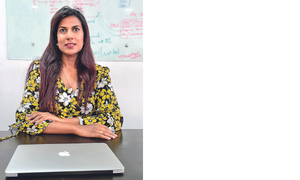


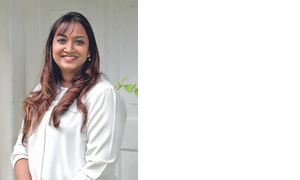

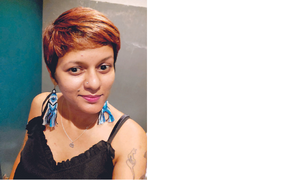
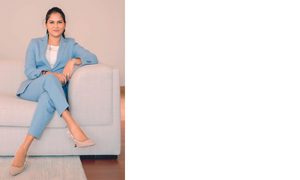
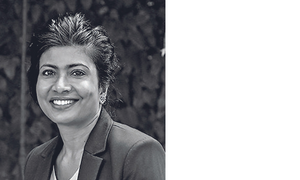
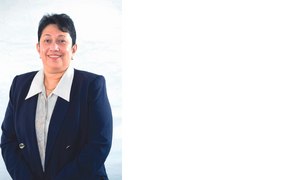

0 Comments